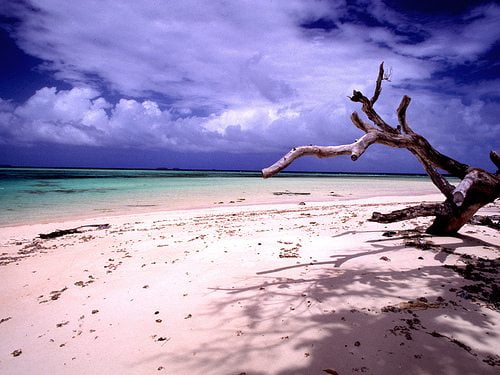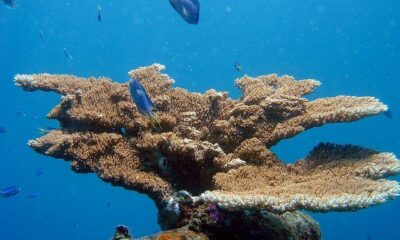

Environment
Climate change endangering coral reefs vital to small islands
Climate change is causing trillions of dollars’ worth of damage to coral reefs each year, disproportionately affecting small island states already threatened by rising sea levels, according to a new UN report.
The study, from the United Nations’ Environment Programme (Unep), warned that rising sea surface temperatures is harming corals from the Indian Ocean to the Caribbean.
These corals are not only an essential part of marine ecosystems – acting as a habitat for many species and as a shelter for young fish – they also help protect coastlines from storms and tsunamis and attract tourism.
The loss of these reefs is estimated to have cost the global economy $11.9 trillion (£7.1tn) per year since the late 1990s, and the small island developing states (SIDS) that depend on them will be hit the hardest.
Meanwhile, these states will also be imperilled by sea level rise, also caused by climate change.
While the global mean sea level rise is 3.2mm per year, much higher increases have been measured in SIDS. In the tropical western Pacific, where many small islands are located, the rate of sea level rise between 1993 and 2009 was 12mm per year, the report notes.
It is feared that some states could lose entire territories, and yet they contribute the least to the processes that could destroy them.
“These 52 nations, home to over 62 million people, emit less than one per cent of global greenhouse gases, yet they suffer disproportionately from the climate change that global emissions cause”, said Achim Steiner, head of UNEP.
However, the report concludes that, by embracing sustainability and renewable technology, these countries could act as an inspiration to bigger states and found inclusive economies for their citizens.
“Fortunately, studies demonstrate that we have the tools and capabilities to head off future developmental setbacks,” Steiner added.
“It is up to the international community to support SIDS – not least through building momentum towards a robust climate agreement – to be agreed in 2015, which will cut emissions and minimize the threat of climate change for these nations.”
The report was released to coincide with World Environment Day on Thursday, which was held in Barbados, a Caribbean SIDS.
Policymakers and charities used the event to urge world leaders to consider the damaging effects that climate change is having on their smaller neighbours.
Photo: Stefan Lins via Flickr
Further reading:
World Environment Day should help save ‘drowning’ small islands
Juggling sustainability and mining: is Mongolia a suitable host for World Environment Day?
Conference calls for sustainable tourism as key factor for island development
‘Climate change has already arrived’, president of the Marshall Islands warns


 Environment12 months ago
Environment12 months agoAre Polymer Banknotes: an Eco-Friendly Trend or a Groundswell?

 Features11 months ago
Features11 months agoEco-Friendly Cryptocurrencies: Sustainable Investment Choices

 Energy11 months ago
Energy11 months agoThe Growing Role of Solar Panels in Ireland’s Energy Future

 Energy12 months ago
Energy12 months agoHow Renewable Energy Can Help Combat Climate Change, According to Indra Energy




























